PHP 8.1 which was released in November 2021, is now available with unique features and performance improvements. JIT compiler is one of the most exciting features. In this blog, I will focus on the top features offered by PHP 8.1 in detail. These features will help you use them in your projects and improve your experience with PHP. This blog is going to be beneficial for beginners and experienced developers.
Top 10 Features of PHP 8.1
- Enumerations
- Fibres
- The 'never' Return Type
- The 'readonly' Property
- Final Class Constants
- New ‘array_is_list()’ Function
- New ‘fsync()’ and ‘fdatasync()’ Functions
- Array Unpacking Support for String-Keyed Arrays
- New 'full_path' Key in '$_FILES' for Directory Uploads
- New 'Intel DatePattern Generator' Class
1. Enumerations
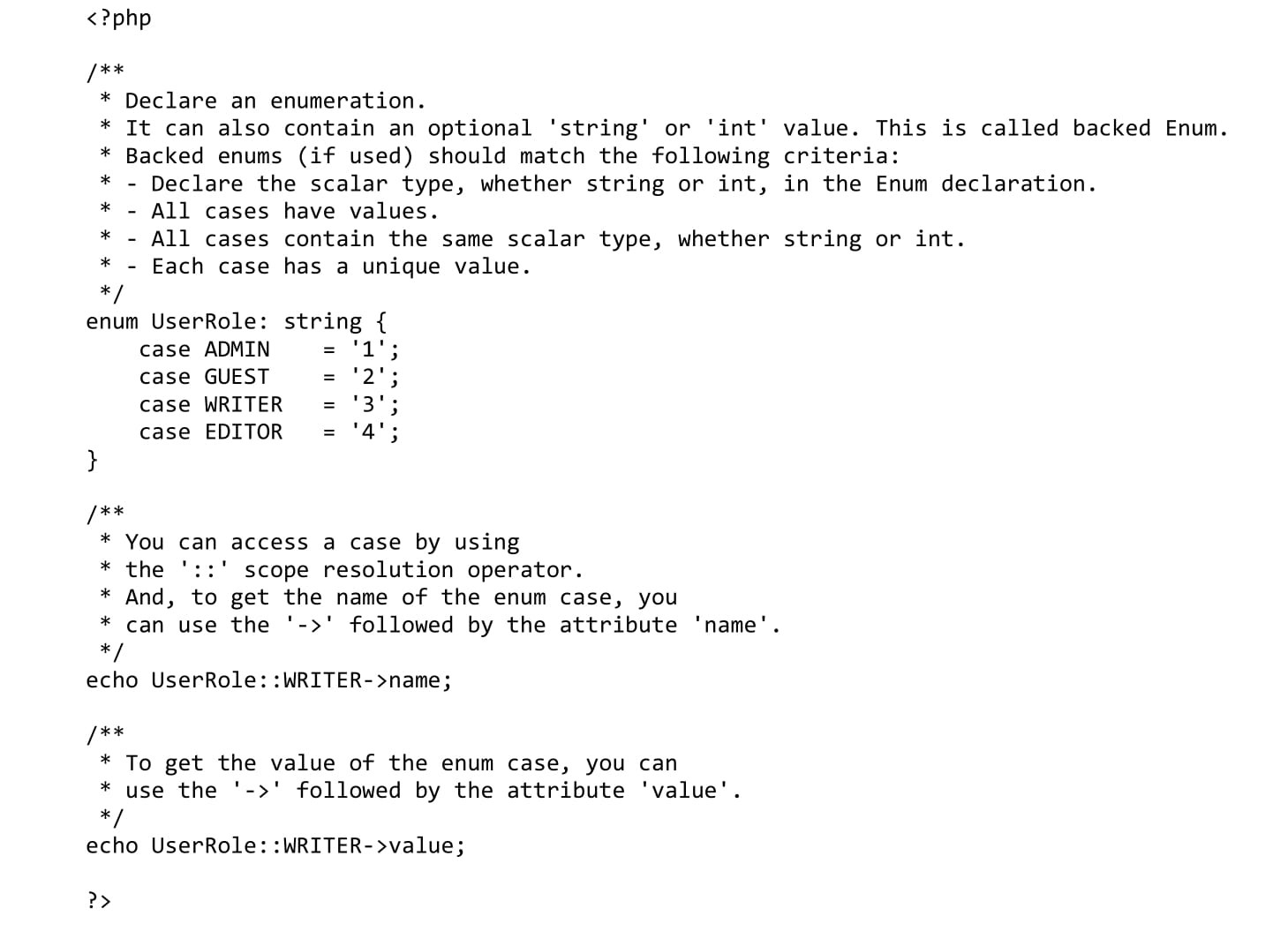
PHP 8.1 adds support for Enumerations, additionally called enum. It is a separated kind that holds a good number of potential numbers. Refer to the accompanying code snippet to see how you can utilize enumeration.
2. Fibers
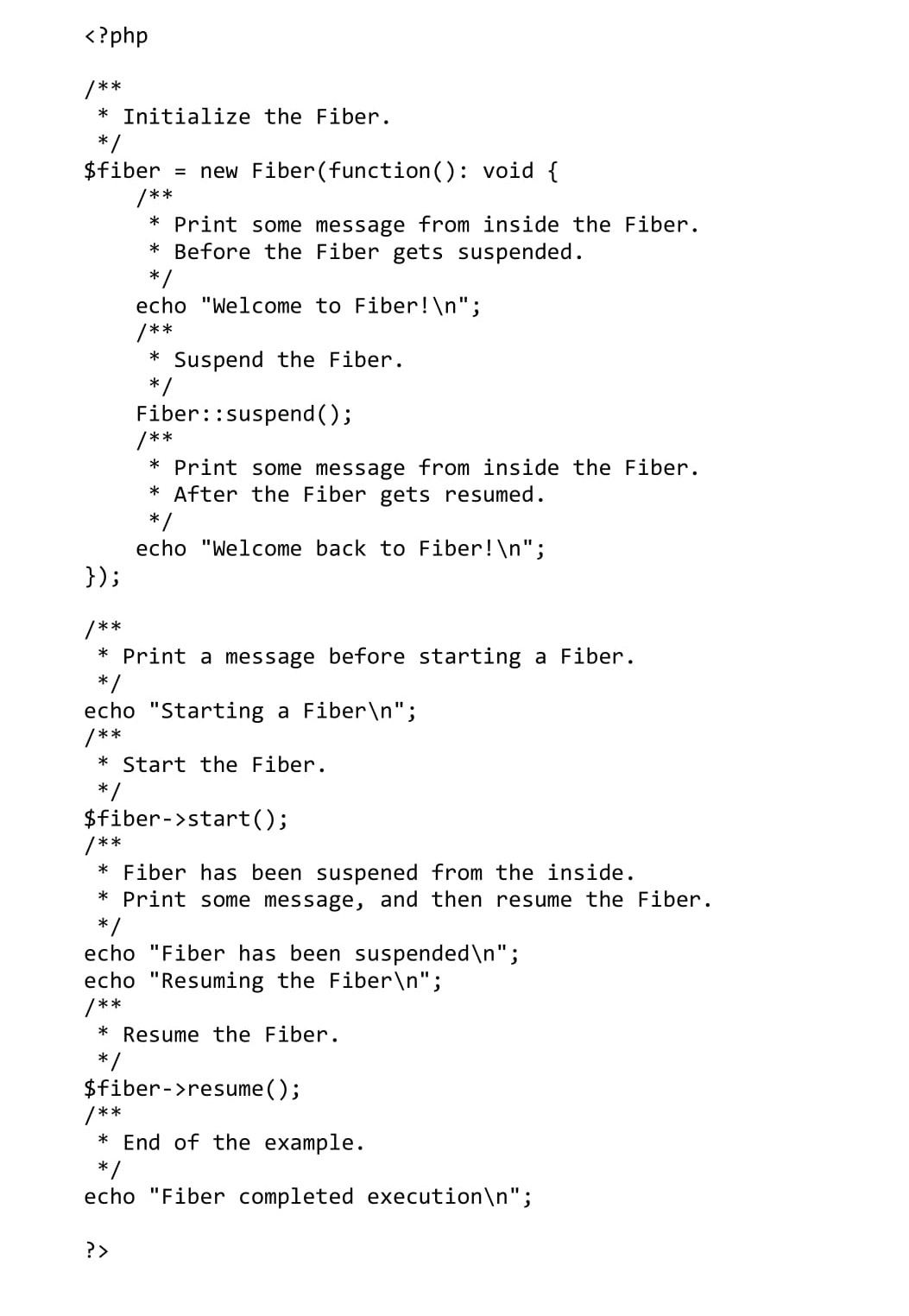
PHP 8.1 supports Fibers, a low-level part that permits performing simultaneous code execution in PHP. Fibre is a code block that contains a stack of variables and states. These Fibers can be considered application strings and can be begun from the principle program. When started, the primary program will not have the option to suspend or end the Fiber. Instead, it must be suspended or terminated from inside the Fiber code block. After the Fiber gets broken, the control returns to the entire program again, and it can keep executing the main program.
Fibre without anyone else doesn't permit synchronous execution of multiple Fibers or the principle Fiber and a Fiber. Be that as it may, it is an immense benefit for the PHP framework to deal with the execution stack and permit nonconcurrent execution productively.
3. The 'never' Return Type
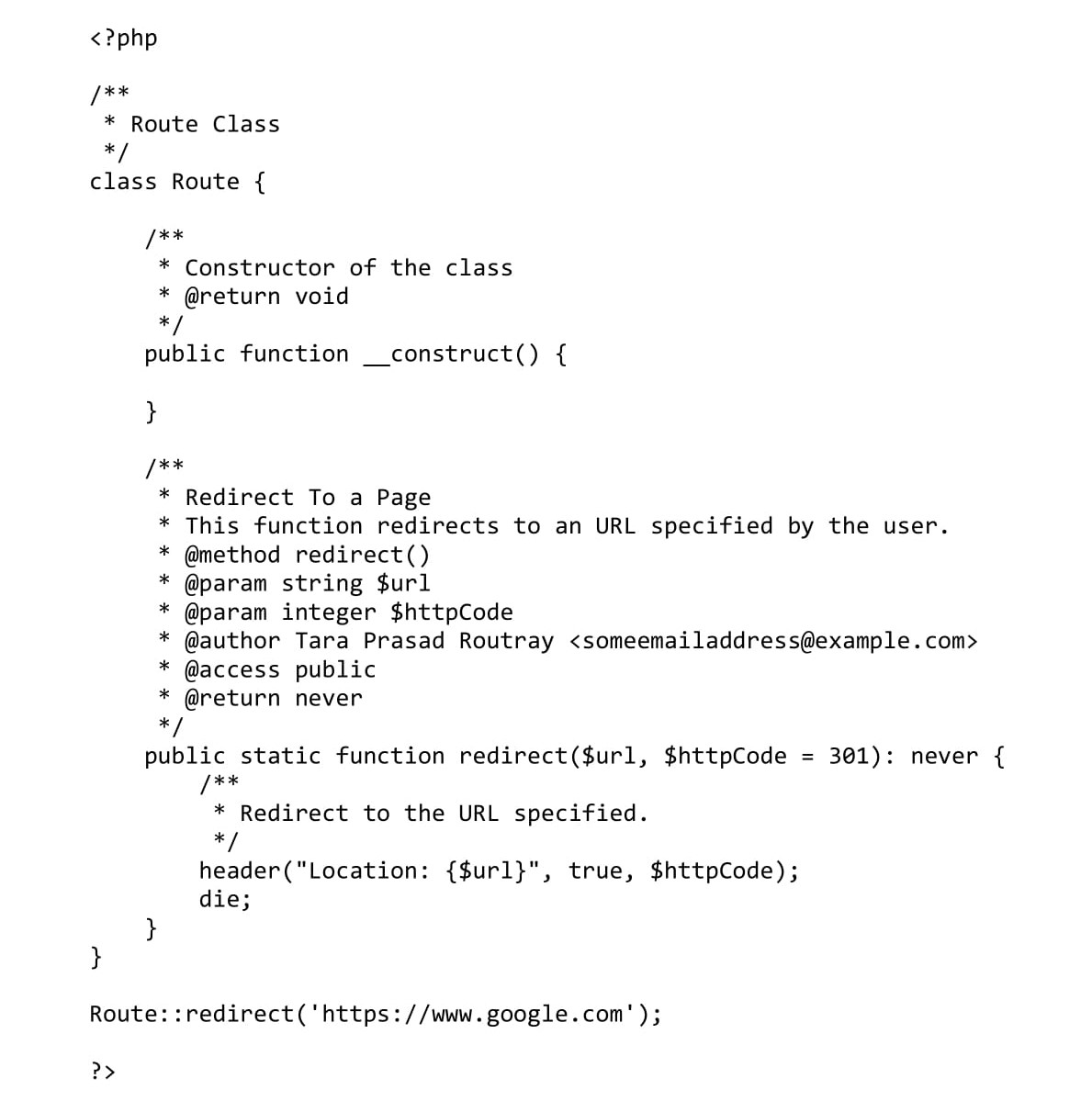
PHP 8.1 adds support for another return type called never. The 'never' Type can be utilized to demonstrate that a capacity will end the program execution after performing a specified set of tasks. This should be possible by tossing an exemption, calling the exit() or die() functions.
4. The 'readonly' Property
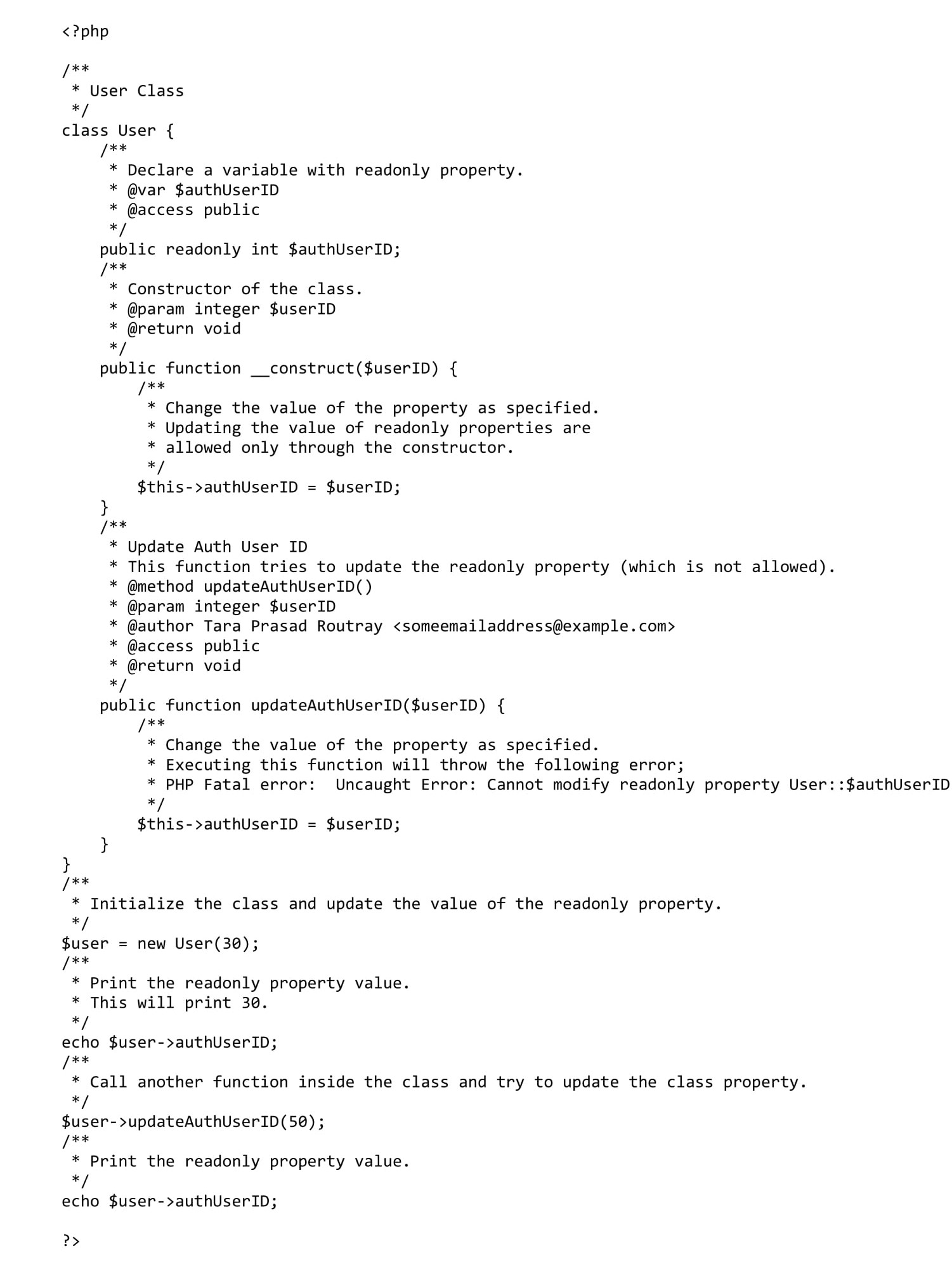
PHP 8.1 adds support for another class property called readonly. A class property that has been perused just must be instated once. The value set inside can't be changed. Assuming you attempt to refresh the value persuasively, the application will error. Refer to te accompanying code snippet to see how you can utilize the read-just Property.
5. Last Class Constants
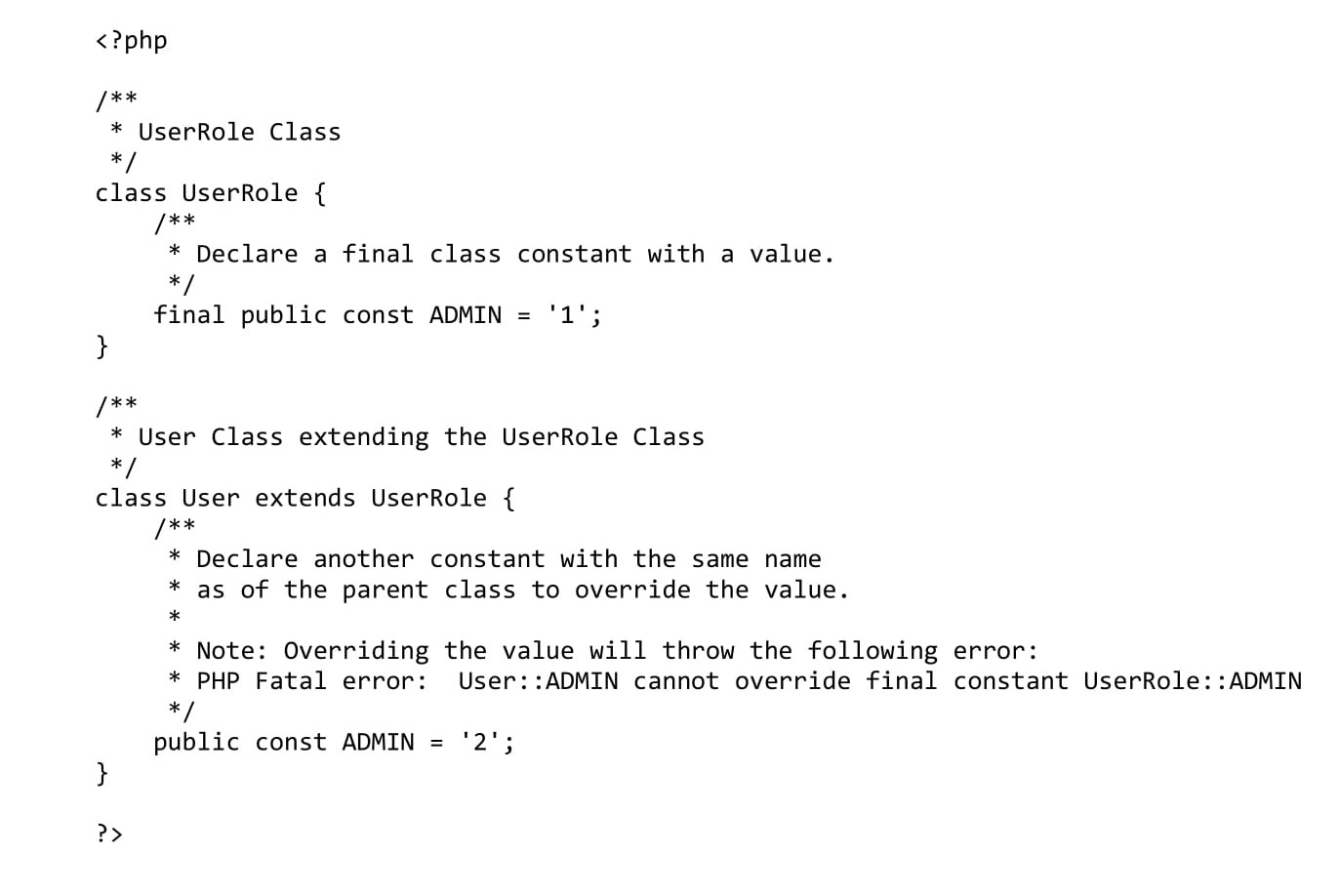
PHP 8.1 adds support for another flag for the class constants called last. Unfortunately, class constants can't be adjusted, even by performing legacy, which implies these can't be expanded or superseded by the subclasses.
You can not use this flag for a private steady since you cannot get it outside the class. Furthermore, pronouncing both last and private constants will bring about a fatal error.
6. New 'array_is_list()' Function
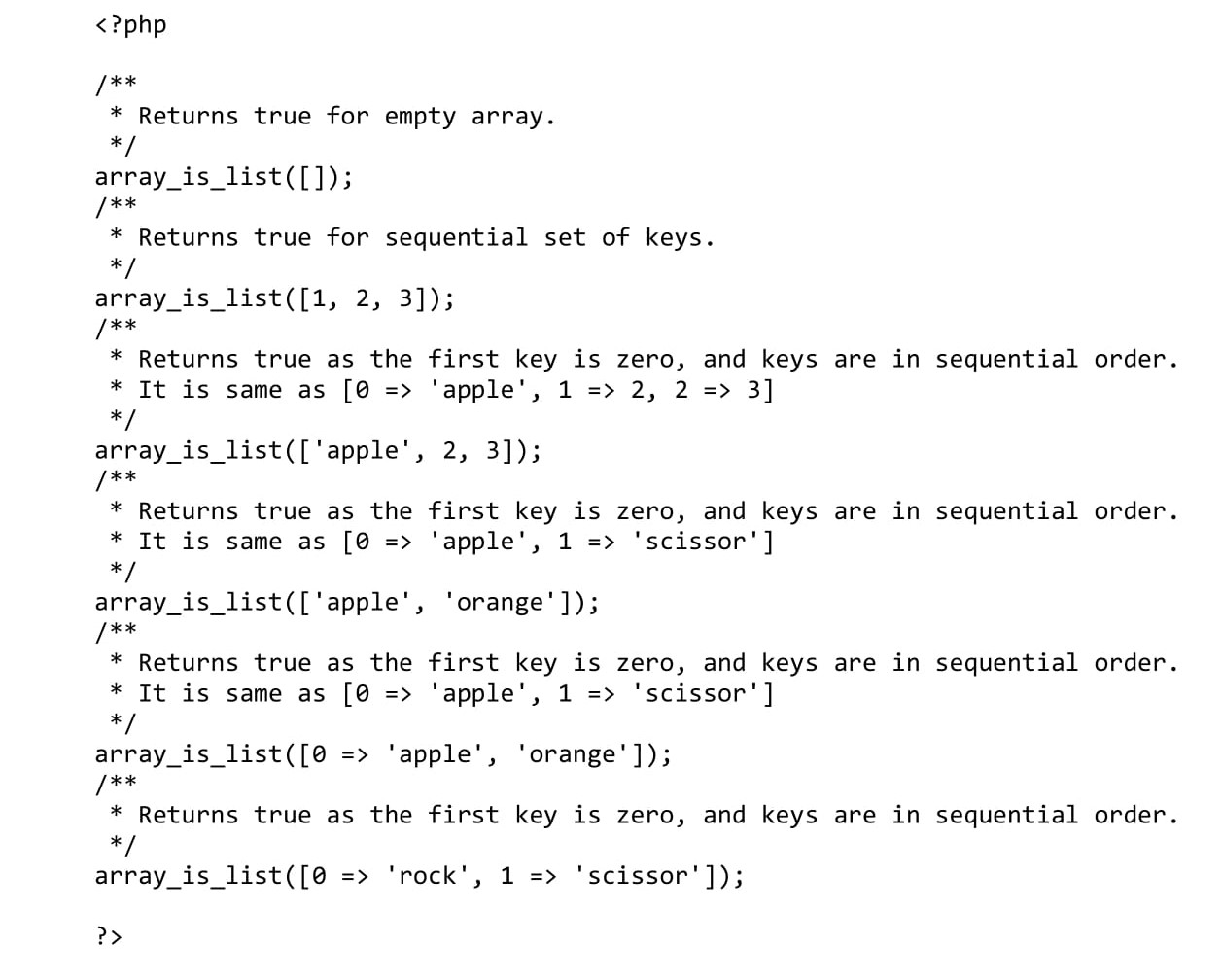
PHP 8.1 adds support for another array work called array_is_list(). It recognizes whether a predefined array generally has consecutive numbers beginning from 0. This capacity returns valid on the off chance that the exhibit is a semantic list of values (an array whose keys start from 0, are largely whole numbers, and without any holes in the middle). It additionally returns valid for void arrays. Allude to the accompanying code snippet to see how you can utilize the array_is_list() work.
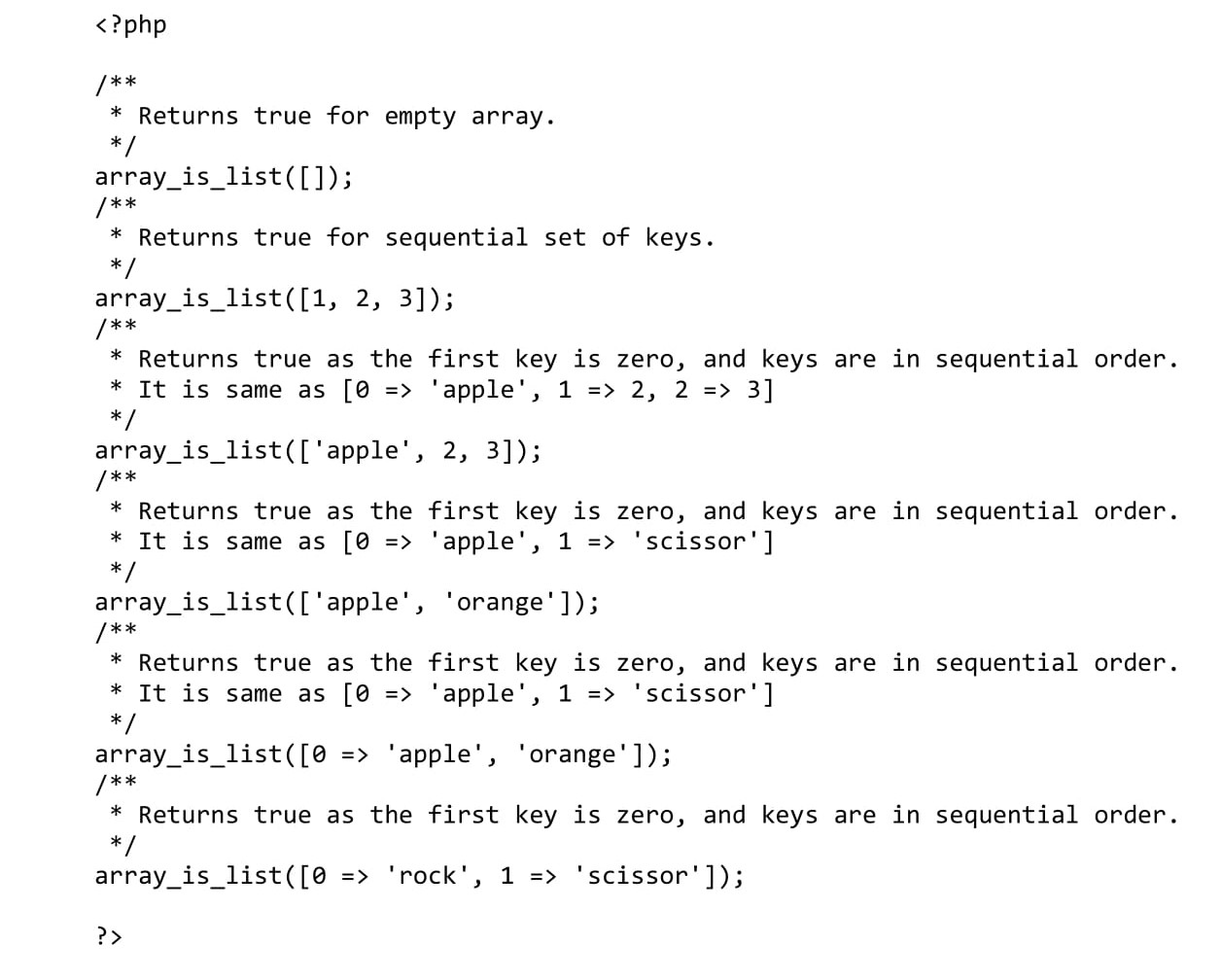
An array whose keys don't start from zero, are not integers, or are integers, but not present in sequential order will evaluate to false.
7. New 'fsync()' and 'fdatasync()' Functions
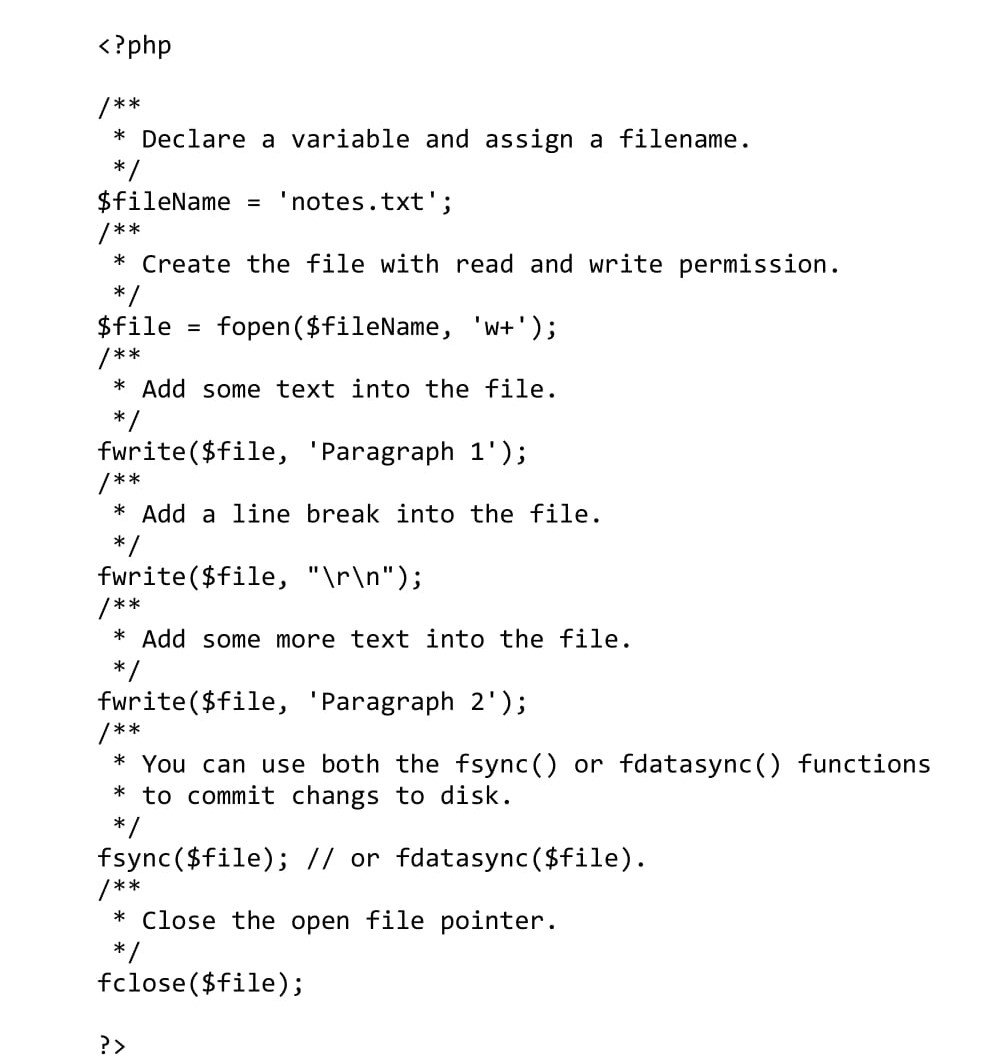
PHP 8.1 adds support for the fsync() and fdatasync() functions. Both have similarities to the current fflush() function, which is used to flush buffers into the working framework. Notwithstanding, the fsync() and fdatasync() flush the buffer to the physical storage. The main contrast between them is that the fsync() function incorporates metadata when synchronizing document changes, while the fdatasync() function doesn't.
The fsync() capacity will take a document pointer and endeavour to submit changes to the disk. It will return valid on progress, false on failure, and will raise and will raise a warning if the resource is not a file.The fdatasync() function works similarly. However it is a piece quicker, as fsync() will endeavour to completely synchronize both the record's information changes and metadata about the document (last adjusted time, and so forth), which is two disk composes.
8. Exhibit Unpacking Support for String-Keyed Arrays
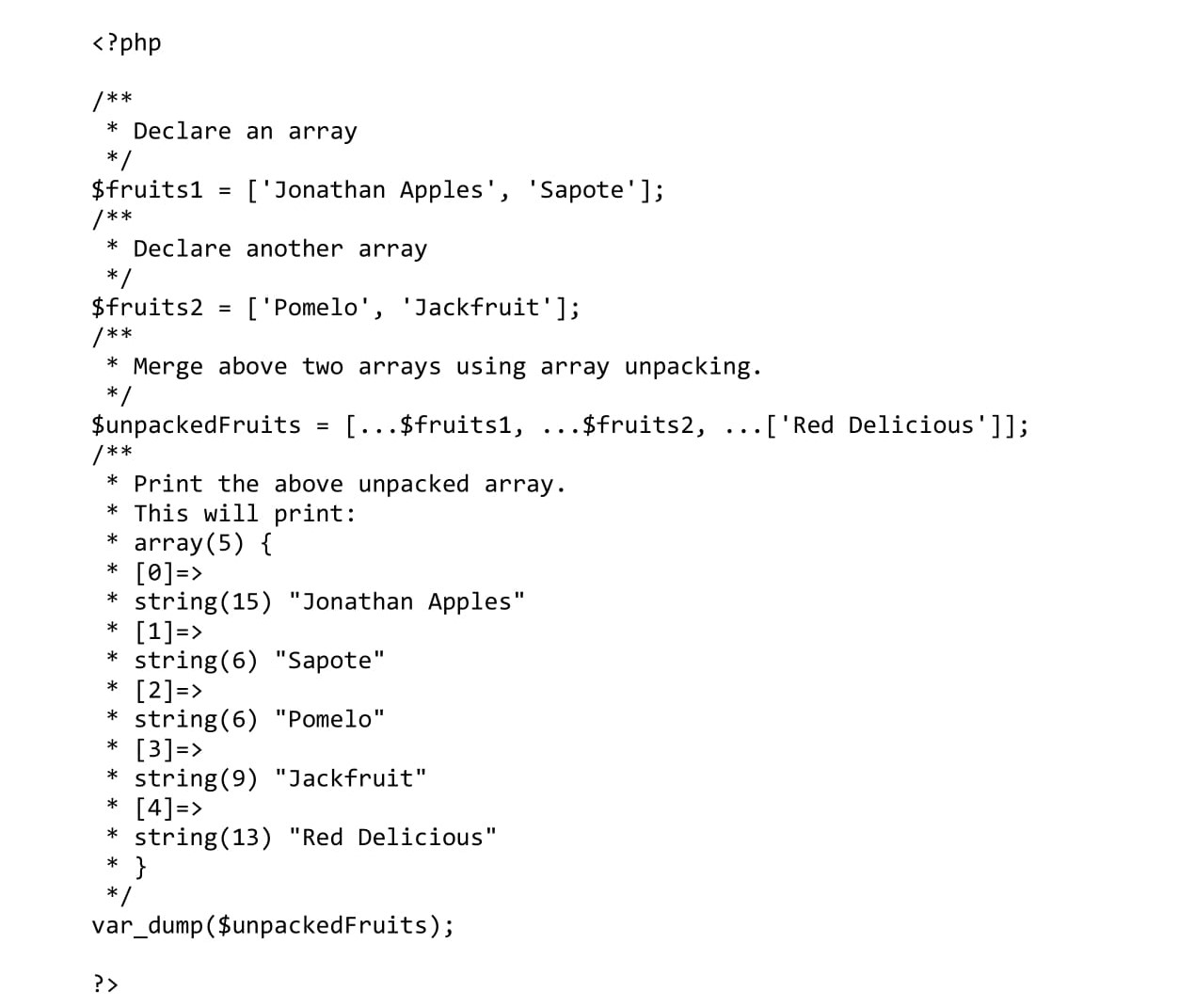
PHP 8.1supports are unpacking the string-keyed arrays. To unload an array, PHP utilizes a spread (… ) operator. This operator has been acquainted with PHP 7.4 by combining at least two exhibits yet with a much cleaner sentence structure. Be that as it may, preceding PHP 8.1, the spread operator just upheld arrays with numeric keys. I prefer the accompanying code snippet to see how you can involve the spread operator for string-keyed arrays.
9. New 'full_path' Key in '$_FILES' for Directory Uploads
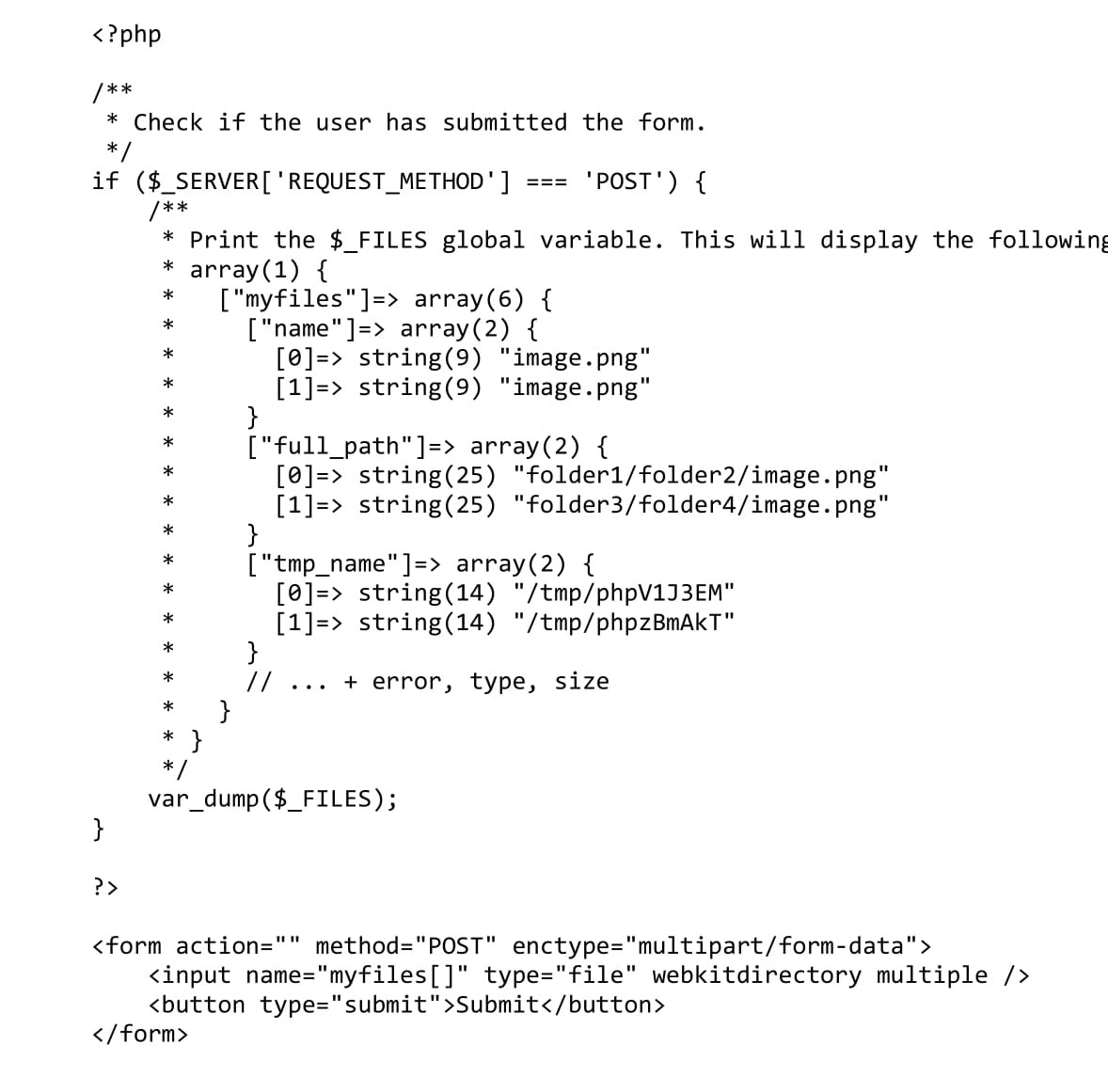
PHP 8.1 adds support for a new full_path key in the $_FILES worldwide variable. Preceding PHP 8.1, $_FILES didn't store the overall ways or the specific directory to the server. Henceforth, you couldn't transfer a whole guide utilizing an HTML document upload form. The new full_path key takes care of this issue. It stores the general ways and recreates the specific directory structure on the server, making directory transfers conceivable. Allude to the accompanying code snippet to see how you can utilize the full_path key with the $_FILES worldwide variable.
10. New 'IntlDatePatternGenerator' Class
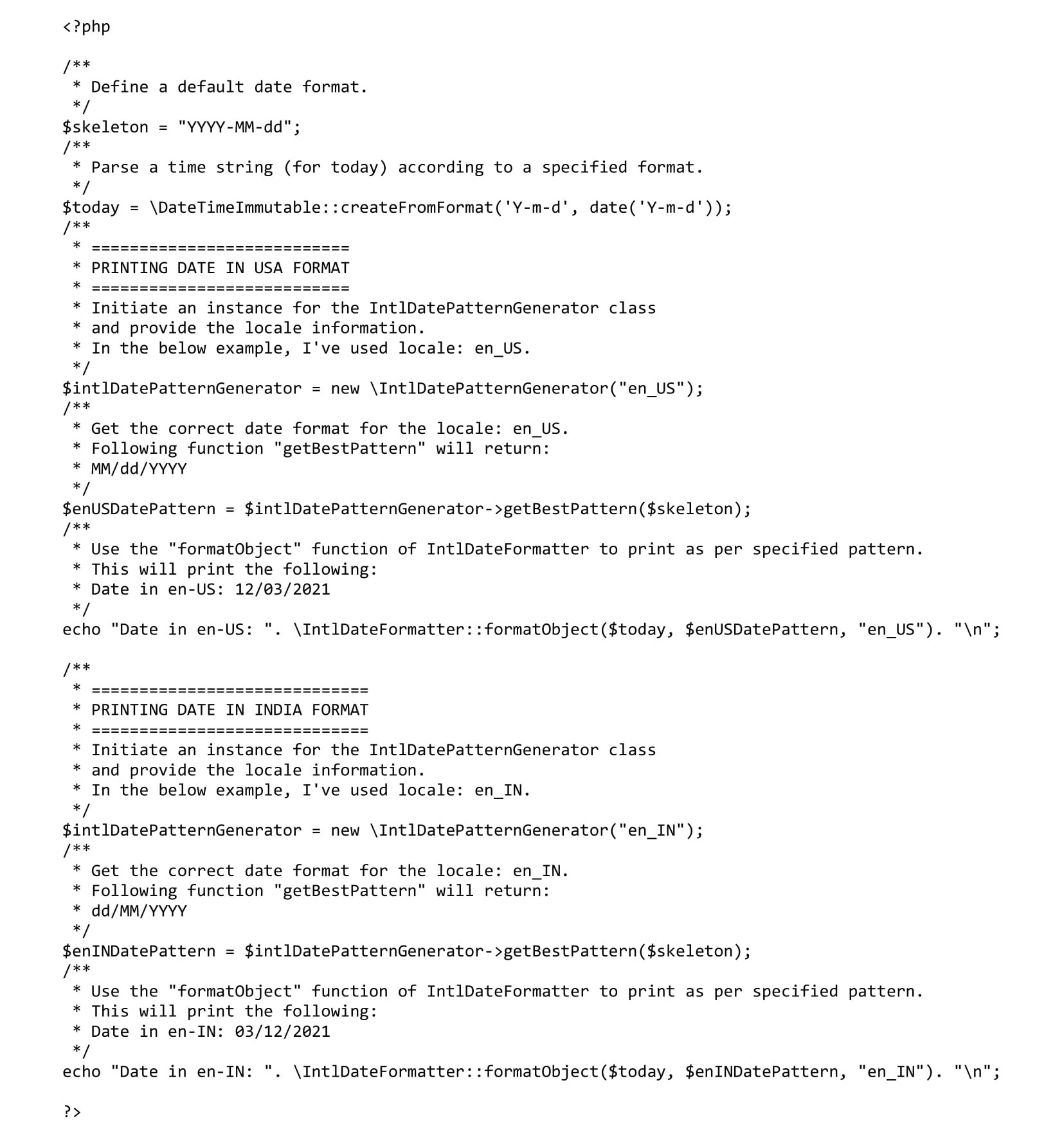
PHP 8.1 adds support for another IntlDatePatternGenerator class. Before PHP 8.1, it was feasible to make a restricted date and time just with the IntlDateFormatter. It upholds eight pre-characterized designs that utilized yesterday, today, and tomorrow. In any case, these organizations are not entirely as adjustable as given by IntelDatePatternGenerator. This class permits determining the arrangement for a date, month, and the course will consequently deal with time and the request. I prefer the accompanying code snippet to see how you can utilize the IntlDatePatternGenerator class.




